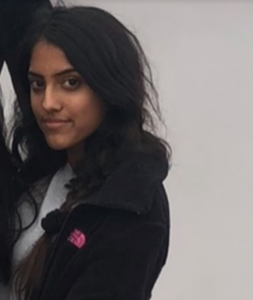Choosing a Major & The Criminal Justice System – Reflection on December Saturday Summit 2020
The December Saturday Summit for the Charlotte and Winston-Salem cohorts focused on choosing a college major and the criminal justice system . Learn more about the Summit from the perspective of a current Scholar.
Hari, College LAUNCH for Leadership Scholar
My name is Hari and I am currently a member of the Wake Forest University College LAUNCH for Leadership Program. The December College LAUNCH Saturday Summit was one that I had been highly anticipating, mainly because I have felt a lot of pressure to choose my college major. I know that I am not alone and many of my peers feel the same demand. When the Saturday Summit began, we heard from Mrs. Cheryl Hicks, who works with the Wake Forest University Office of Personal and Career Development. She thankfully eased my nerves and delved into the specifics of picking a major. Immediately Mrs. Hicks debunked a common misconception that I, and probably many of my peers, possessed: choosing a college major does not equate to choosing a career. She further explained that a college major does not need to be declared in high school and that it is possible to change your major if you decide to. To aid us down the right path, we took the “Holland’s Theory of Career Choice “ quiz in order to find our strengths. I then spoke with a group of other Scholars who had similar scores as me and we discussed possible career options that would fit us based on our strengths and interests. Discussing this topic with other like-minded teenagers allowed me peace of mind and it was comforting to see that I was not alone in my uncertainty towards the future. By the time Mrs. Hicks was finished, I felt relieved of the past anxieties associated with choosing my future major. In fact, I’m looking forward to exploring my possibilities!
Our next focus of the day was discussing the injustice in the court system. As someone who is considering a future in criminal justice, I was elated to have the opportunity to learn from Ms. Dominique Caldwell, who is an Assistant District Attorney. 2020 has made me substantially more conscious of systematic inequalities present in our nation, and Ms. Caldwell furthered my knowledge of how and why these injustices occur. We learned about implicit biases – attitudes and stereotypes that we unconsciously attribute to people – and how they lead to discrimination in the court system. Ms. Caldwell also discussed the relevant factors that commonly affect the criminal justice system: race, socioeconomic status, mental health, and gender. We then broke into small groups to participate in a discussion activity, which included guiding questions to help us digest the information and further our understanding of this important topic. Ms. Caldwell ended by informing us of ways that we can be the change in order to bring the justice that we seek. I took our conversations that day with me and am very grateful for the opportunity to educate myself about a court system that I hope to be a part of one day.



